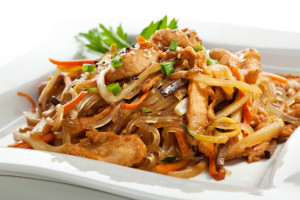Food fraud is as old as restaurants, and new detection technologies are uncovering some old practices.
 According to Eater, plenty of restaurants have a secret seasoning or a prized sauce recipe they keep locked away in a safe — but what if the hidden ingredient that made the food so good was actually illegal narcotics? Nearly three dozen restaurants in China have been discovered sprinkling powdered opium poppies on their dishes, reports CNN.
According to Eater, plenty of restaurants have a secret seasoning or a prized sauce recipe they keep locked away in a safe — but what if the hidden ingredient that made the food so good was actually illegal narcotics? Nearly three dozen restaurants in China have been discovered sprinkling powdered opium poppies on their dishes, reports CNN.
Five restaurants have already been prosecuted, and another 30 are currently being investigated. According to a news release by the China Food and Drug Administration, the affected businesses include noodle shops, a restaurant specializing in soup dumplings, a sake snack bar, a fried chicken shop, and dozens of others serving everything from mutton broth to black duck.
Morphine, codeine, and heroin are all derived from opium poppies; while it’s not known for sure whether a garnish of poppy powder gives food addictive qualities or not, it’s illegal under Chinese law and has been since 2013— but nonetheless, it remains a popular food additive.

